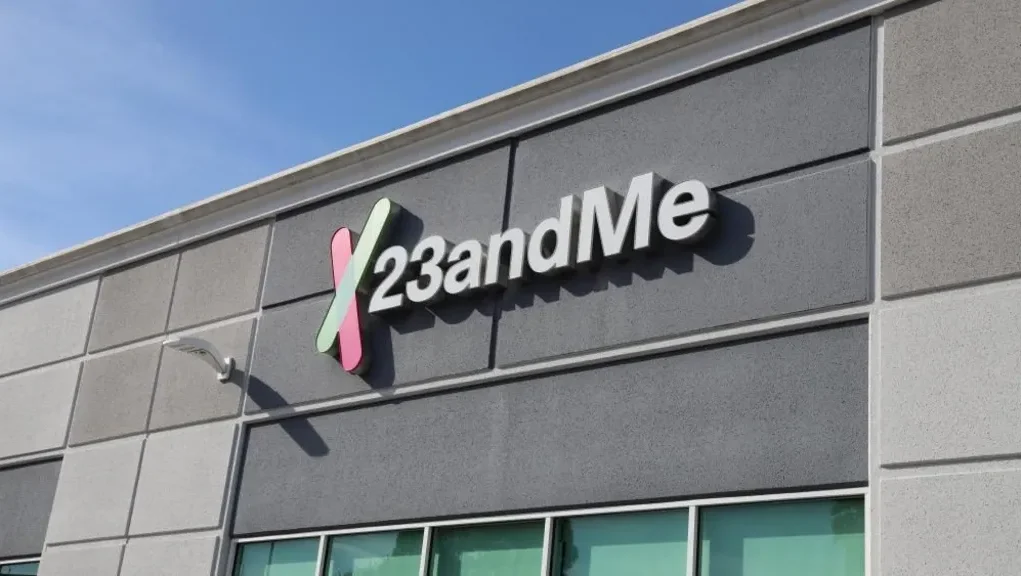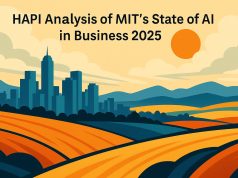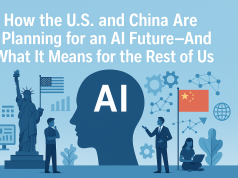In the grand marketplace of modern science, few products have promised as much intimacy with our past and our future as 23andMe. A bit of spit, a few weeks of waiting, and suddenly you’re face-to-face with your ancestral tapestry, your genetic predispositions, and—let’s admit it—the uncomfortable revelation that your relatives may not all be from where Uncle Bob insisted they were.
But now, with 23andMe’s filing for Chapter 11 bankruptcy, that very intimacy—the digitized essence of 15 million people—is at risk. It’s a peculiar paradox: a company built on decoding human potential is now navigating its own existential crisis. This isn’t just a tech or business story. It’s a test of adaptability, trust, and human dignity.
Let’s examine what’s really unraveling here through the Human Adaptability and Potential Index (HAPI), a multidimensional framework designed to evaluate how individuals and systems respond to change. The collapse of 23andMe is more than corporate failure—it’s a real-world case study in adaptability under stress, for users, institutions, and technology itself.
1. Cognitive Adaptability: When Simplicity Meets Complexity
At its peak, 23andMe sold a narrative of simplicity: understand your health and heritage with a cheek swab. But bankruptcy has turned that clarity into cognitive chaos. Customers now face murky data policies, multi-step deletion processes, and vague corporate reassurances. The average user is forced to rapidly interpret legalese, technological loopholes, and privacy implications.
HAPI tells us that cognitive adaptability—the ability to acquire new knowledge and rethink old assumptions—is essential here. The users most likely to safeguard their data are not necessarily the ones with the most technical knowledge, but those willing to confront complexity, ask hard questions, and act quickly. The digital literacy gap becomes a fault line across which trust and protection are unevenly distributed.
2. Emotional Adaptability: The Psychology of Betrayal
There is no user manual for how to feel when your DNA may go up for auction.
23andMe’s customers are experiencing a unique form of psychological breach. Unlike a hacked email or a compromised credit card, DNA isn’t something you can change with a few clicks. As users report anger, helplessness, and regret, we witness a test of emotional adaptability: the ability to stay composed, resilient, and constructive under emotional strain.
For many, that emotional resilience is now being tested in browser tabs filled with “how to delete my genetic data” guides. While 23andMe assures customers their data won’t be sold willy-nilly, the underlying issue remains: emotional contracts were broken long before the financial ones.
3. Behavioral Adaptability: When Systems Hinder, Not Help
Deleting your data should be simple. It isn’t.
The technical systems of 23andMe collapsed under a surge of deletion requests. Two-factor authentication failed. Verification codes expired. And customer service? Overwhelmed. This is where behavioral adaptability—the capacity to change actions in response to new realities—collides with bad design.
From a HAPI perspective, users were behaviorally adaptive. They changed their routines, tried again and again, found workarounds. The company, ironically, was not. It had not designed for a scenario in which trust might evaporate and users might flee en masse. In adaptability science, this is a textbook case of what happens when you over-optimize for the “happy path.”
4. Social Adaptability: The Rise of the Privacy Peer Network
In a stunning display of social adaptability, users began to do what institutions could not: support each other. Community forums, Reddit threads, tech journalists, and attorneys general stepped in to fill the void. Where official channels were clogged, peer-to-peer networks became lifelines.
Social adaptability is often overlooked, yet it’s what enables collective intelligence to emerge during systemic failure. Users weren’t just protecting themselves—they were guiding others through the labyrinth. In doing so, they demonstrated what 23andMe failed to: that strength in ecosystems arises not from top-down control but from lateral collaboration.
5. Growth Potential: DNA Is Fixed, But Accountability Is Not
Here’s the philosophical crux: DNA is unchangeable. But how we build, regulate, and trust systems around it is very adaptable.
For users, this is a teachable moment. Many now view personal data through a more critical lens. For policymakers and entrepreneurs, this is a litmus test: will we continue to build techno-utopias on foundations of fragile trust, or will we pivot toward transparency-first ecosystems?
And for future stewards of bio-data, the path forward must be forged with a deep understanding of growth potential. It’s not just about technical innovation—it’s about building systems capable of evolving ethically, not just efficiently.
Conclusion: When the Past, Present, and Future Converge in One Dataset
In Greek mythology, the Oracle of Delphi warned: Know thyself. But she never said, Upload thyself. As millions confront the surreal possibility that their genetic code could be sold to the highest bidder, we’re reminded that knowledge without wisdom can be dangerous.
The HAPI framework teaches us that adaptability is not about prediction—it’s about readiness. And in this case, neither 23andMe nor its users were truly ready. But some adapted anyway.
This isn’t just about a biotech company collapsing under financial missteps. It’s about redefining what we mean by human potential in a world where data, trust, and identity intertwine. It’s about building resilient systems that don’t just scale—but grow.
Because in the end, the most important genome is not the one in your cells.
It’s the one we write together, in how we adapt.




























